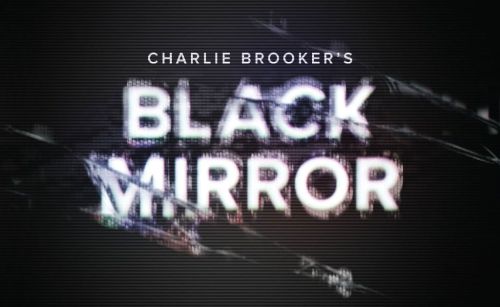Black Mirror TV Show Review

Black Mirror is so much more than meets the eye.
The horror and sci-fi television anthology played on the fears and fantasies brought about from the interactions between technology, society and security while it provided audiences with an intense and suspenseful moments and impactful messages about our world.
Charlie Brooker, the creator and director, brought a certain level of expertise, wonder and fright to a show built on cyberpunk horror and excellent plot structure. Each episode provided a new sense of intrigue about its elaborately cyberpunk horror stories. The actors were often film stars, such as Jon Hamm and Hayley Atwell, which add to the artistry of the series. On top of that, despite running around an hour in length, each episode had found a way to establish its multiple world, with maintained rules and various technologies, and brought about its message in an ominous yet effective way.
Brooker’s real focus with the show, more than the technology and futuristic technology, was on the depravity and fear. For example, would a device that plays back all of our memories make our lives better, or does it make us go slowly insane? Would putting the dead souls of society in an electronic program made to their likes justifiable? Would people really need more power to isolate, marginalize and humiliate each other? These questions really go to the core of the series and highlights some of best directing and thematic elements the show has to offer.
In one of my favorite episodes of the show, from Season 2, “White Bear,” Brooker really brought his best with such a horrific and barbaric plot. We followed a woman as she is tortured while onlookers witnessed such punishments with glee and filmed her struggles on their smartphones. Technology was sometimes the cause and catalyst, but the show’s object of fascination is how horrible we could be to each other. The show sets an horrifying yet realistic message about society, technology and the human psyche.
The new season is no exception. It delivered six episodes (double its usual three after releasing on Netflix over the British station, Channel 4). The new episodes were not always perfect, but Brooker was more successful at building devastating second acts than at delivering his endings. Several episodes were dedicated solely on social media’s terrors, as if mob mentality and terror didn’t exist before hashtags and media. “White Christmas,” the show’s most recent (and stand-alone) episode, didn’t feel quite as novel and unsettling as previous chapters.
The current season of “Black Mirror” also offered strong commentary that existed within each episode and provided a new overlapping perspective with each episode. Some episodes balance out others, and the season contained not just a collection of tales but an assortment of genres, too. “Hated in the Nation” was a detective story; “Shut Up and Dance,” was an action thriller; and “San Junipero” was one of the best romance episodes of the show. Taken all together, the season’s episodes attempted to offer a collection of visions and interpretations of life in the Internet Age from the perspective of generations.
Overall, this season of Black Mirror proved to continue the legacy that the preceding episodes achieved. From superb acting to well-directed scenes to the eerie yet realistic themes of society and technology, Black Mirror was a strong contender from one of the best television series I had watched in a long time.
(RATING: 4 OUT OF 5 STARS)
Your donation will support the student journalists of Bellaire High School. Your contribution will allow us to purchase equipment and cover our annual website hosting costs.






